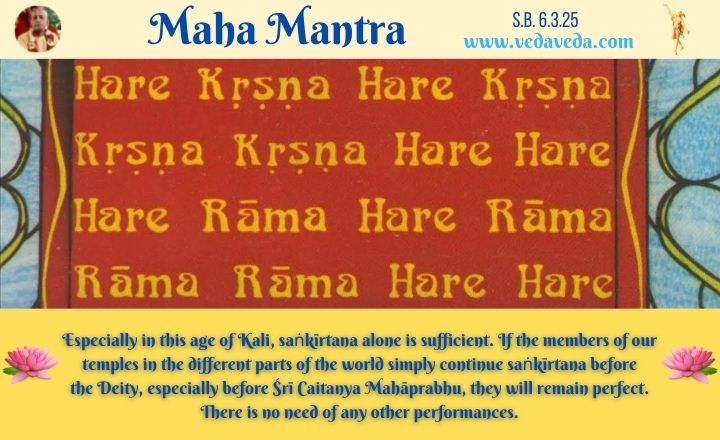
SRIMAD-BHAGAVATAM 7 CHAPTER 2 TEXT 61
śrī-nārada uvāca
iti daitya-pater vākyaṁ
ditir ākarṇya sasnuṣā
putra-śokaṁ kṣaṇāt tyaktvā
tattve cittam adhārayat
TRANSLATION
Śrī Nārada Muni continued: Diti, the mother of Hiraṇyakaśipu and Hiraṇyākṣa, heard the instructions of Hiraṇyakaśipu along with her daughter-in-law, Ruṣābhānu, Hiraṇyākṣa’s wife. She then forgot her grief over her son’s death and thus engaged her mind and attention in understanding the real philosophy of life.
PURPORT
When a relative dies one certainly becomes very much interested in philosophy, but when the funeral ceremony is over one again becomes attentive to materialism. Even Daityas, who are materialistic persons, sometimes think of philosophy when some relative meets death. The technical term for this attitude of the materialistic person is śmaśāna-vairāgya, or detachment in a cemetery or place of cremation. As confirmed in Bhagavad-gītā, four classes of men receive an understanding of spiritual life and God—ārta (the distressed), jijñāsu (the inquisitive), arthārthī (one who desires material gains) and jñānī (one who is searching for knowledge). Especially when one is very much distressed by material conditions, one becomes interested in God. Therefore Kuntīdevī said in her prayers to Kṛṣṇa that she preferred distress to a happy mood of life. In the material world, one who is happy forgets Kṛṣṇa, or God, but sometimes, if one is actually pious but in distress, he remembers Kṛṣṇa. Queen Kuntīdevī therefore preferred distress because it is an opportunity for remembering Kṛṣṇa. When Kṛṣṇa was leaving Kuntīdevī for His own country, Kuntīdevī regretfully said that she was better off in distress because Kṛṣṇa was always present, whereas now that the Pāṇḍavas were situated in their kingdom, Kṛṣṇa was going away. For a devotee, distress is an opportunity to remember the Supreme Personality of Godhead constantly.

